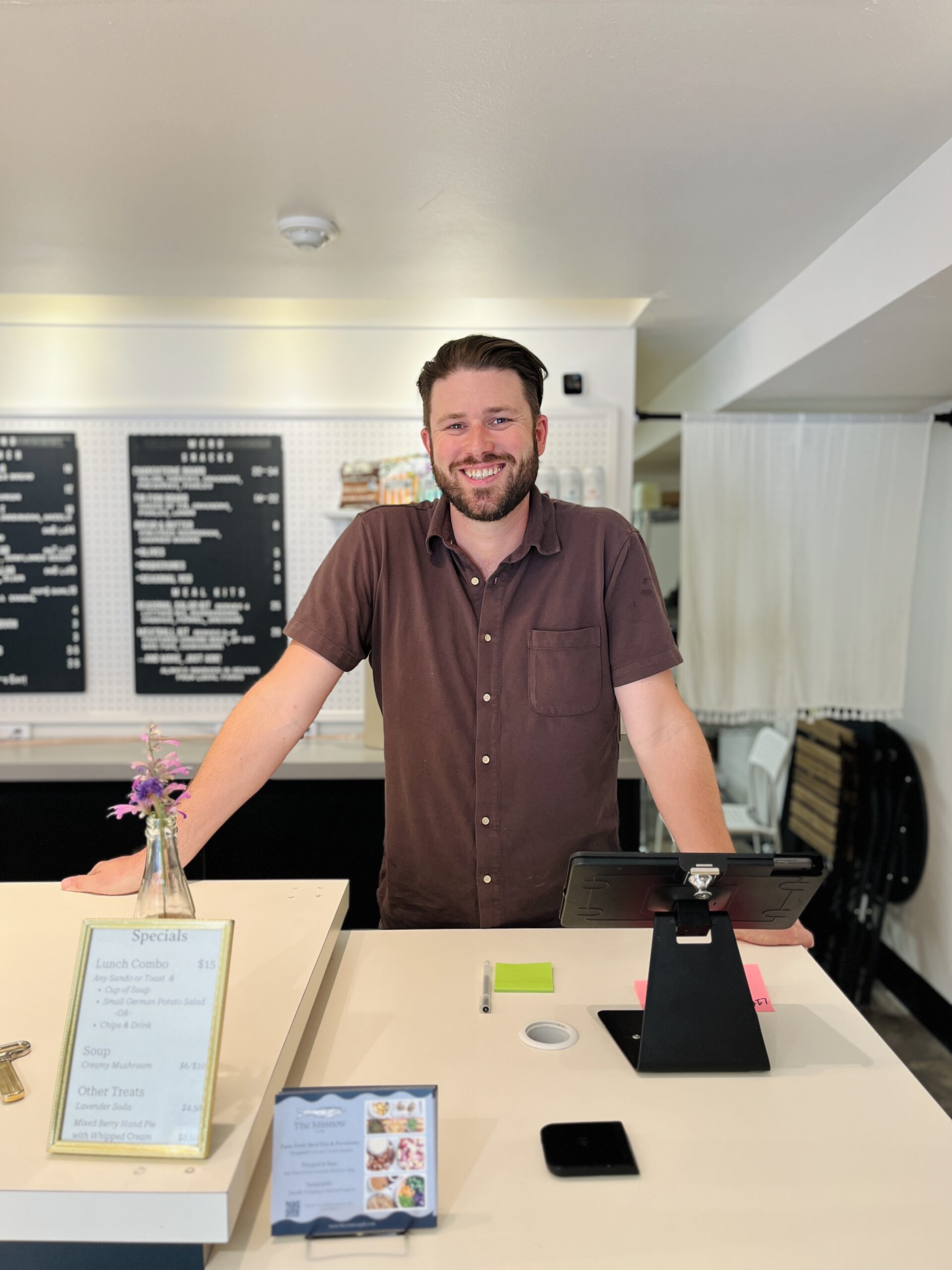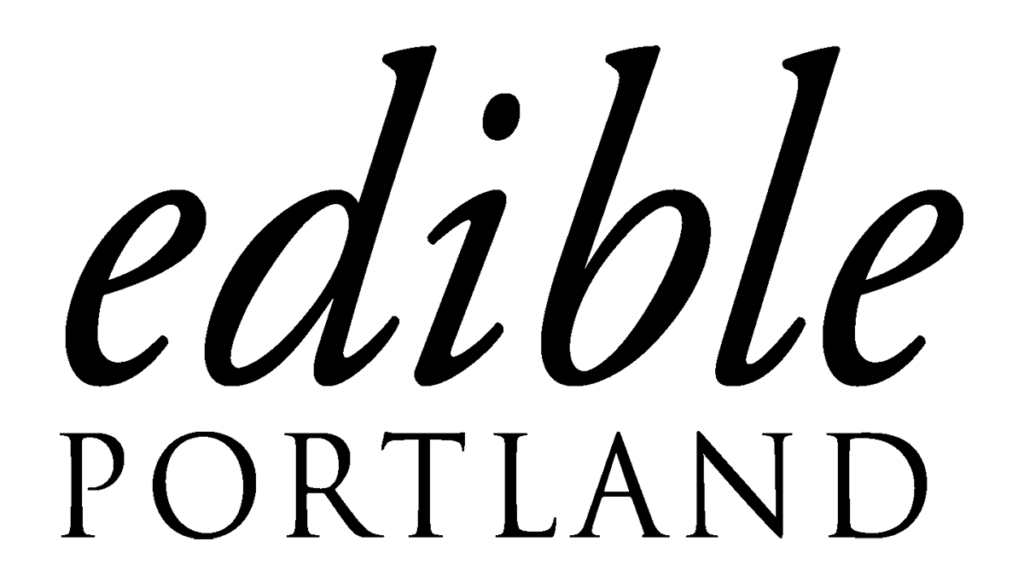
Reader, I have a confession to make. I love good food, but I cannot cook. Sure, I studied at Italy’s Slow Food University and proofread cookbooks for a living, but here’s the thing: I’ve also had three microwave fires. In 2024. And it’s only August, y’all.
So riddle me this: how, on one unassuming Friday afternoon, did I find myself sitting down to eat a bonafide, real-deal, capital G gourmet meal—of my own creation? We’re talking thick, seared slices of wild-caught Albacore tuna; heaps of cauliflower rice studded with cilantro, and glossy leaves of baby bok choy tossed in a miso shiitake vinaigrette.
Stumped? I would’ve been too, if it wasn’t for the Minnow.
Founded by Darren Yondorf, the Minnow is part seasonal eatery and part meal prep service—think HelloFresh, but with hyperlocal ingredients, reusable packaging, and a charming NW Portland storefront to boot. I whipped up my Friday feast using one of their meal kit options, handcrafted by Yondorf and his small kitchen team.
At the Minnow, Yondorf’s on a mission to promote farm-fresh, seasonal eating by partnering directly with high-integrity local producers. It’s work, but it’s the kind of work he’s uniquely trained to undertake—Yondorf grew up in a restaurant family and spent years in fine dining before branching into the producer’s world, working hands-on with growers in Guatemala and leading farm partnerships for food start-ups like Good Egg.
“I have a profound respect for people who are working closely to the land,” says Yondorf. “Farming is essentially gambling. You plant without knowing if the seed is going to work, or if there will even be a market for your product.”
All of the Minnow’s producers are chosen for their high-integrity craft, which Yondorf employs as a blanket term for regenerative agricultural methods—practices like rotational grazing and no-till farming that build up soil and climate resiliency over time.
Take my albacore tuna, for example. This sushi-grade catch came from Tre Fin Day Boat Seafood, a local day-boat fishery that uses a traditional hook and line method to catch fish. Not only does this practice minimize bycatch, but it also makes the risk of overfishing irrelevant.
Many of the Minnow’s partner producers are also small—think farms of 10 acres or less—and often lack the security of an established market. By working with the Minnow, they come away with a direct sales channel; a guaranteed buyer for surplus crops.
It’s a mutually beneficial ecosystem, and it all loops back to the customer with fresh, local food options. As Yondorf puts it, “Seasonal food just tastes better. It’s grown for consumption, not transport,” he says. “And it’s just fun—participating in the seasons connects you to the land we live on.”
At the Minnow, there’re plenty of ways to get your farm-fresh fix. Pop into the newly opened storefront on NW 23rd Avenue for made-to-order soups, salads, and sandwiches, as well as a curated selection of picnic provisions and local artisan goods. Modeled after the provençal markets of France, the vibe inside is light, casual, and familiar—neighbors trickled in and out during my weekday visit, with requests ranging from an on-the-go birthday treat to potato salad for a backyard barbeque.
Or, you could do as I did and order a meal kit. While the contents change based on what’s in season, each kit can be prepared in 15 to 30 minutes and comes fully stocked with freshly prepped ingredients, a comprehensive recipe card, and reusable deli containers. Prepare for leftovers—kits are generously packed, so even though mine was created to serve two to three people, I ended up having leftovers for a week. Larger, family-sized mains are also available, as are smaller add-ons like the Mixed Berry Mini Pie.
For Yondorf, the beauty of the meal kit is that it can be a sort of a jumping-off point; the first step towards a more seasonally informed diet. I had always skimmed over microgreens at the market, for instance, assuming they weren’t worth the extra cost. But after tasting the peppery dimension they added to my dish, I’m a convert.
“There are vegetables like celeriac, which are just not in high demand because they’re ugly,” says Yondorf. “But once people have used it in a recipe once, then they know how to use it and will hopefully buy it again. It’s a small way to open up their culinary world a little bit.”
Increasing visibility to farm-fresh food and the people behind it is core to Yondorf’s work at the Minnow—it’s even the reason behind the name.
“Minnows are ecologically important because they eat aquatic vegetables and insects, and then larger fish eat them,” he explains. “We’re just calling out all the small fish in the food system, so that’s farmers, distributors, delivery people, everything that happens from growing the food to getting it to the doorstep.”
The Minnow is open from 11 AM to 5:30 PM Tuesday through Sunday, and meal kit orders can be placed online or over the phone. For updates and special offers, check out the Minnow’s newsletter and Instagram page, or pay a visit to the storefront at 740 NW 23rd Ave.
